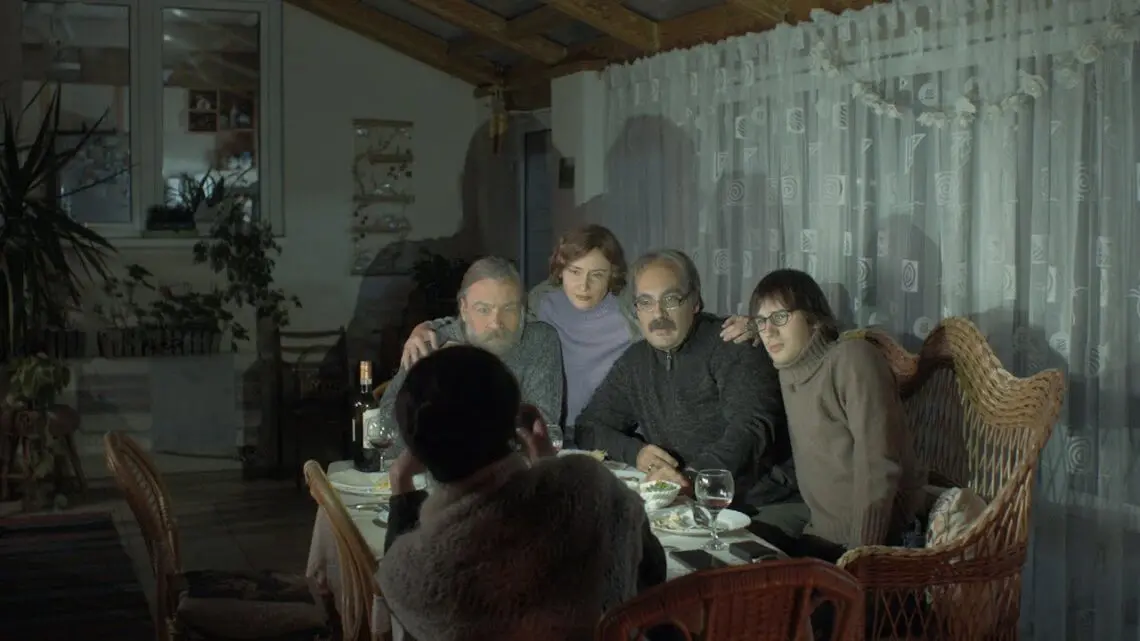History, when told well, is a muddy, muddled thing. There are no neat narratives or happy endings. Philip Sotnychenko “La Palisiada” takes that truism and braids it into a suitably complex form: This 1996-set noir of sorts chronicles a pivotal moment in Ukrainian history by focusing on a murder investigation. But as its two leads burrow themselves in the hunt for a guilty party, their journey turns out to be as dirtied and disorienting as the very systems from which the former Soviet country was weening itself, just a few years after their independence.
A murder opens “La Palisiada,” though it’s not the one with which Sotnychenko’s film is concerned. Instead, the shocking gunshot that precedes the film’s title card sets the table for a flashback to the past. Here is a tale not just of violence but the root of that violence, and its continued consequences. So it makes sense that Sotnychenko asks audiences to travel back to 1996, where we are witness to a police investigation over the murder of a colonel. That was the year Ukraine would sign up to the European Convention on Human Rights, banning the death penalty — a key detail that becomes more relevant as the story at the heart of “La Palisiada” unfolds.
The investigation is led by forensic psychiatrist Oleksandr (Andrii Zhurba) and his detective friend Ilhar (Novruz Pashayev), who find it increasingly hard to parse facts from fiction, and who struggle to wade through a bureaucratic world that is clamoring for a culprit — anyone, no matter what the evidence or the witnesses may say. As it goes along, the investigation feels more like a formality where no real clarity is aimed for, let alone achieved.
Popular on Variety By the time a second gunshot is fired, it’s clear Sotnychenko is capturing what may be the last gasp of a country in the throes of its former self, its state-sanctioned violence a haunting specter of the U.S.S.R. Is this what Ukraine is, or what it wishes to never be again? Is 1996 a pivot or merely a crease? Can a country really shed its history without being condemned not only to repeat it, but to allow it to ripple across time? These questions, abstract as they may be, anchor the bloodied work that Oleksandr and Ilhar are tasked with untangling.
But it’s the form of the film that tells the story here — whether with long, still scenes that merely feature its characters eating and drinking in silence as a song plays from a record player, or equally intriguing moments where handheld cinematography evokes the aesthetic of a ’90s home video. The investigation, as it happens, depends on many recorded witness accounts, taped re-enactments, and even a quick-shot video of possible suspects all still laying on the floor, their hands behind their heads, asked to face the video camera that serves to document their faces as moving mugshots.
Such footage is often spliced into the film, at times presented as indistinguishable from the shaky, embodied camerawork elsewhere — including the very first scene, where DP Volodymyr Usyk’s technique suggests someone is surreptitiously recording the proceedings, teeing both the paranoia at the heart of the film as well as its more haunting possibilities. By the time you see how these videos create a reality that’s more beholden to power than to truth, their homey aesthetic emerges less as a lesson in nostalgia than an exercise in urgent remembrance.
The filmmaking insists on our inability to disassemble what’s seen, what’s recorded, and perhaps even what’s real. Indeed, the more we learn about the murder at the heart of “La Palisiada,” the less clear it all becomes. There’s an elliptical, almost dream-like logic to how Sotnychenko crafts the film, which is disorienting to the point where you start to wonder if there is anything solid in what we’re observing. All is nebulous and oblique, but within that haze is a powerful story about how history is written and the generational reverberations that such history cannot avoid.
The film thus reveals itself with its title, a play on words that blends the terms “lapalissade” (a comically obvious truism) and “policiada” (police story). Even as it may try your patience with its needlessly mysterious turns, “La Palisiada” rewards your rapt, discomfited attention — mostly because it is better understood as a kind of ghost story, about the ways past violence still lingers in the present.

 Italian
Italian







